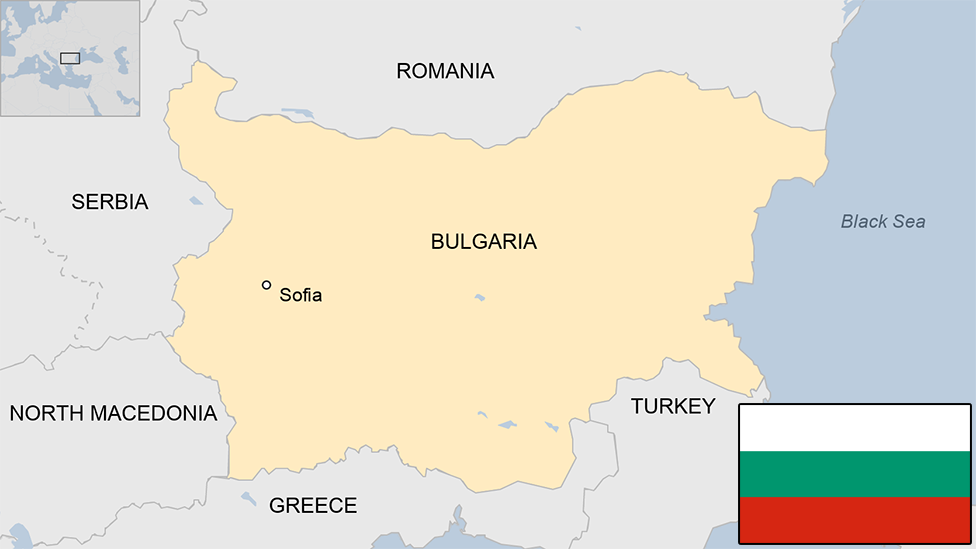Bulgaria cabinet faces tough task of tackling poverty
- Published
Bulgarian President on the driving forces behind the political crisis
Bulgarian President Rosen Plevneliev has told the BBC that the interim government he appointed on Tuesday must turn Bulgaria in a new direction, towards transparency, efficiency, and cooperation.
In response to his plea, protest organisers say they will call a one-week halt to the demonstrations, which have been held every day since 20 January, when electricity bills were burnt in front of the offices of the city council.
A soft-spoken man with a flair for business and mathematics, Rosen Plevneliev uses the word "wisdom" a lot.
The wisdom of Bulgarians who took to the streets because their situation was unbearable, the wisdom needed now from his non-party caretaker government.
Need for bravery
But he also talks about danger, and the need for bravery.
The danger that the financial stability laboriously established by previous governments could be lost. The danger that some at home or abroad could try to prolong and take advantage of instability.
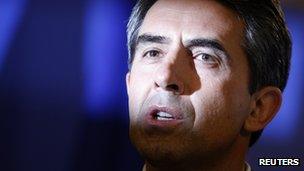
Mr Plevneliev has promised an international audit to find out if the state's wealth was squandered
And the bravery of those who must now confront powerful business interests.
"Bulgarian people are usually very conservative and patient, but when issues have to be addressed, they act," he says.
"I take their messages very seriously."
He cites energy and health as sectors into which billions have been pumped and lost because they were not transparent or efficient.
"It is a dangerous path we are starting on, but it is a very important one for Bulgaria, because we cannot wait any more."
As examples of bravery, he cites the decisions taken by the outgoing government to cancel two major Russian energy projects, the massive nuclear power station at Belene, and the oil pipeline from Burgas to Alexandroupolis.
"I believe that what happens in Bulgaria has its internal but also external reasons and background," he replied, when asked whether he believed Russia had a hand in stirring up discontent in Bulgaria, because of anger over the loss of such lucrative contracts.
An international audit of past privatisation deals, to find out if the state's wealth was squandered, would also be carried out, and all details made public, he promised.
'Our country is corrupt'
A yellow brick road, Boulevard Tsar Osvoboditel, leads from the presidential palace past the parliament building. The bricks were donated as a wedding present for Ferdinand I and Princess Marie in 1893.
Just behind the parliament, Zhivko Hristov and his friends from the Eagles' Bridge movement have been camped for the past week. Eagles' Bridge has been the starting point for the daily protest marches in Sofia.
"Bulgaria's financial stability has been built on the backs of the ordinary people," says Mr Hristov.
He offers the following analogy: "Twenty-three years ago my toilet wasn't working, so I called the plumber. I've been paying him patiently for 23 years, and now I finally ask him why it's still not working. 'You tell me how to fix it!' he says."
He supports the president's idea of more EU oversight of what happens in Bulgaria - the international audit.
"It has become impossible to live here. Please help us to fix our country, and then we'll stay. If we can't survive here, we will come to your countries, and start searching for a job, and start taking your workplaces."
Beside the improvised camp, a small shrine to Plamen Goranov has been set up. Goranov died on 3 March of his injuries, after apparently setting himself on fire outside the mayor's office in Varna.
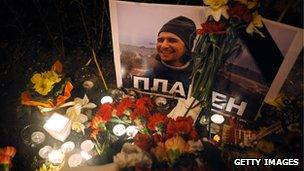
Plamen Goranov died after apparently setting himself on fire outside the mayor's office in Varna
Many details of that incident are still unclear, and the CCTV footage has not been made public.
"He had a very strong sense of justice," says his best friend, Dimityr Sybev.
"Our country is corrupt, and he was very angry about that. Our efforts to make a change just ran into a wall. The presence of the mafia in Varna was the end of Plamen."
"I truly believe that people will take the hand we are offering, and that they will work with us," said President Plevneliev.
"If not… there might be a deeper process of destabilising Bulgaria, which could be also a part of a much bigger plan - imported or internally created."
- Published12 March 2013
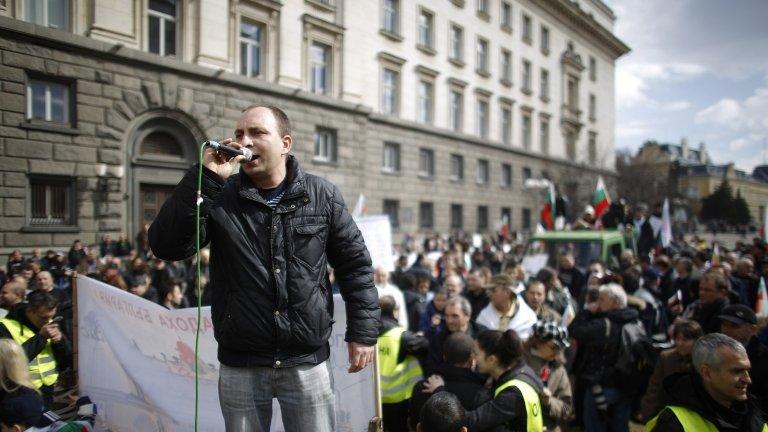
- Published20 February 2013
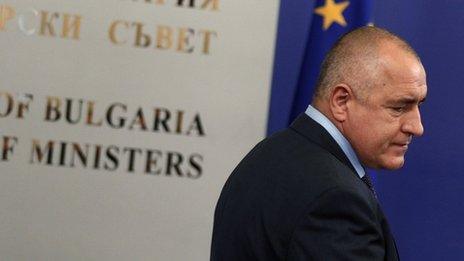
- Published20 January
